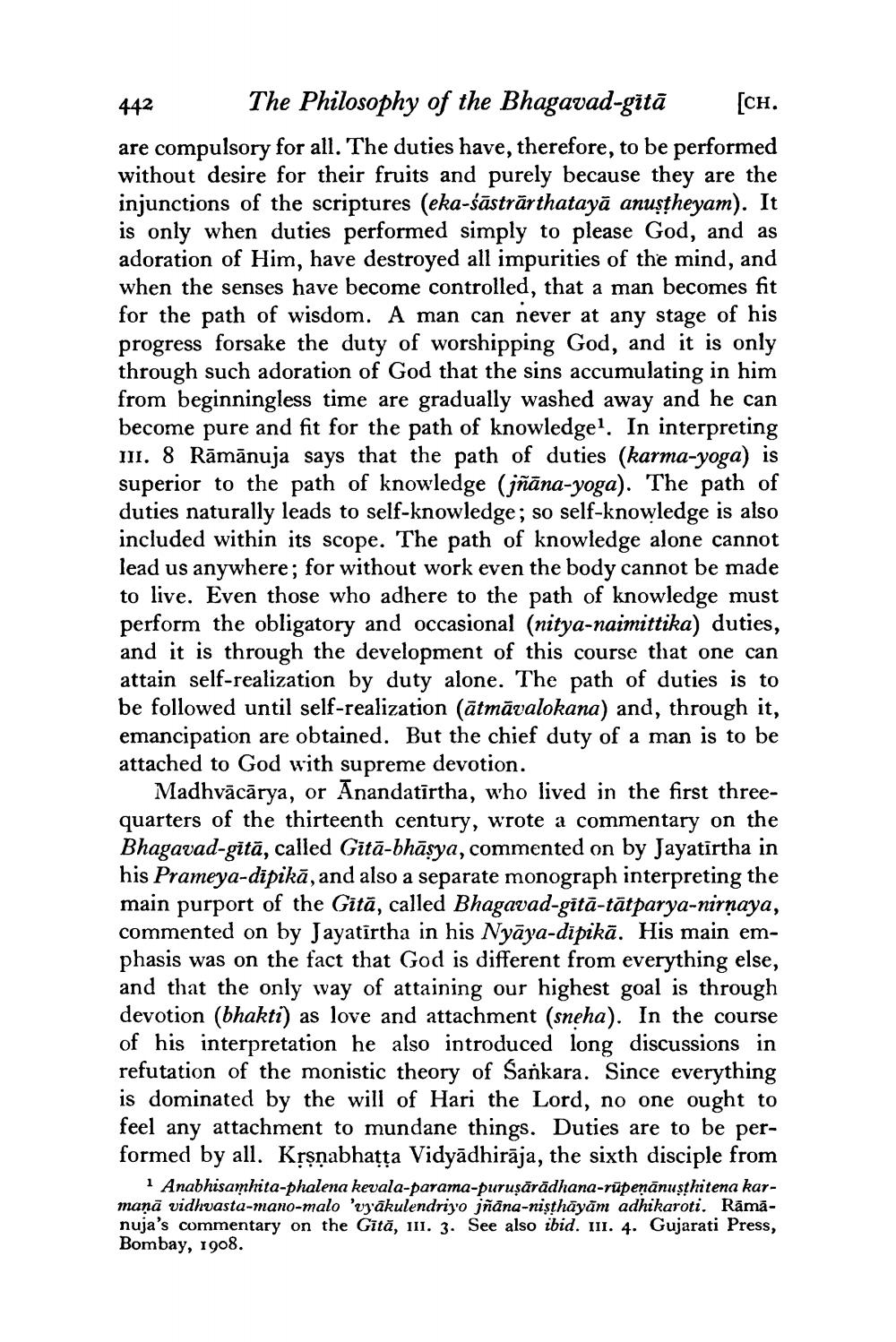________________
442 The Philosophy of the Bhagavad-gitā [CH. are compulsory for all. The duties have, therefore, to be performed without desire for their fruits and purely because they are the injunctions of the scriptures (eka-śāstrārthatayā anuştheyam). It is only when duties performed simply to please God, and as adoration of Him, have destroyed all impurities of the mind, and when the senses have become controlled, that a man becomes fit for the path of wisdom. A man can never at any stage of his progress forsake the duty of worshipping God, and it is only through such adoration of God that the sins accumulating in him from beginningless time are gradually washed away and he can become pure and fit for the path of knowledgel. In interpreting 11. 8 Rāmānuja says that the path of duties (karma-yoga) is superior to the path of knowledge (jñāna-yoga). The path of duties naturally leads to self-knowledge; so self-knowledge is also included within its scope. The path of knowledge alone cannot lead us anywhere; for without work even the body cannot be made to live. Even those who adhere to the path of knowledge must perform the obligatory and occasional (nitya-naimittika) duties, and it is through the development of this course that one can attain self-realization by duty alone. The path of duties is to be followed until self-realization (ātmāvalokana) and, through it, emancipation are obtained. But the chief duty of a man is to be attached to God with supreme devotion.
Madhvācārya, or Anandatirtha, who lived in the first threequarters of the thirteenth century, wrote a commentary on the Bhagavad-gitā, called Gītā-bhāsya, commented on by Jayatirtha in his Prameya-dipikā, and also a separate monograph interpreting the main purport of the Gītā, called Bhagavad-gitā-tātparya-nirnaya, commented on by Jayatirtha in his Nyāya-dipikā. His main emphasis was on the fact that God is different from everything else, and that the only way of attaining our highest goal is through devotion (bhakti) as love and attachment (sneha). In the course of his interpretation he also introduced long discussions in refutation of the monistic theory of Sankara. Since everything is dominated by the will of Hari the Lord, no one ought to feel any attachment to mundane things. Duties are to be performed by all. Krsnabhațța Vidyādhirāja, the sixth disciple from
1 Anabhisamhita-phalena kevala-parama-puruşārādhana-rūpeṇānusthitena karmanā vidhvasta-mano-malo 'uy'ākulendrijo jñāna-nişthāyām adhikaroti. Rāmānuja's commentary on the Gītā, 11. 3. See also ibid. III. 4. Gujarati Press, Bombay, 1908.




